Sustainable Agriculture
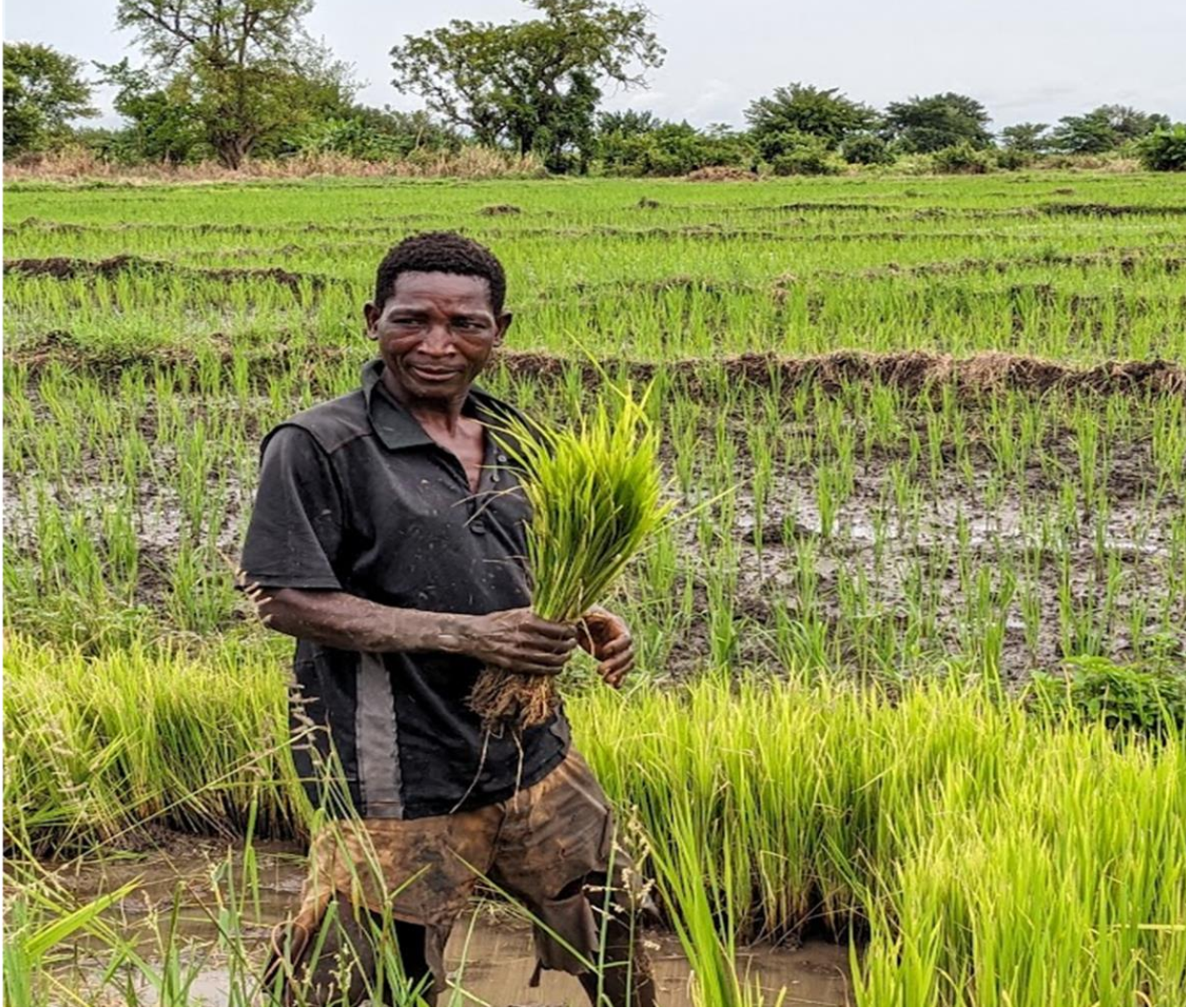
Scaling-up Nature-based Solutions (NbS) for Climate Change Resilience in Tanzania (RESOLVE-NbS)
The RESOLVE-NbS project is a three-year activity funded by the Norwegian Agency for Development Cooperation (NORAD), focusing on high-production agro-ecological landscapes in Iringa and Morogoro within the SACGOT region. The RESOLVE-NbS project contributes to and aligns with Tanzania's National Climate Change programming, including priorities set out in the NDC (2021), currently being revised, and the National Environmental Master Plan for Strategic Interventions (2022-2032), as well as other Tanzania’s global commitments, such as AFR100 and UNFCCC.
The RESOLVE-NbS Project will be delivered through a partnership between IUCN, the Government of the United Republic of Tanzania, and implementing partners, including CAN Tanzania, EAMCEF, CARE Tanzania and WWF Tanzania, and NCMC.
The main objective of the RESOLVE-NbS project is to accelerate the application and use of Nature-based Solutions to address the impacts of climate change and land degradation on food systems and natural ecosystems.
Specifically, the project intends to:
- Enhance awareness, capacity, and knowledge management for improved NbS planning, mainstreaming, and implementation.
- Implement NbS for ecosystem-based adaptation (EbA), disaster risk reduction, and mitigation through pilot and scale-up projects, and contribute to conservation, sustainable management, and restoration of natural ecosystems.
- Integrate gender-sensitive NbS and climate-smart planning into adaptation and disaster reduction policies, strategies, and plans.
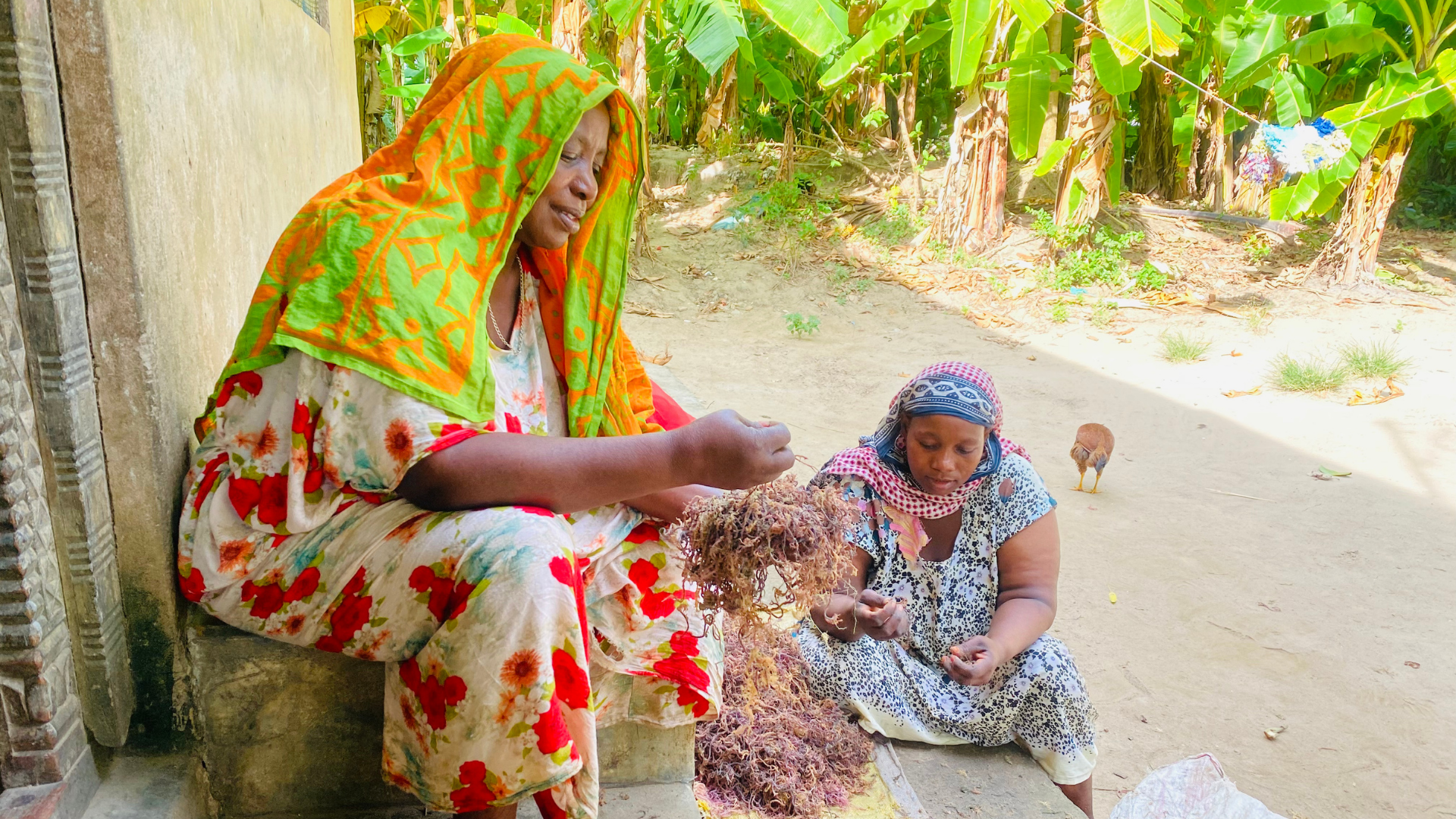
Strengthening the Contribution of Local Actors for a Climate Resilient Society in Zanzibar (Phase II)
This project, implemented by Climate Action Network Tanzania (CAN Tanzania), is a follow-up on the achievements and lessons learned from its pilot phase in Chuini, Zanzibar. The project responds to the identified vulnerability of Zanzibar’s communities, whose livelihoods in agriculture, fisheries, and tourism are highly climate-sensitive, by empowering local actors to lead and participate in climate adaptation and resilience-building efforts.
In its previous phase, the project successfully enhanced preliminary climate adaptation knowledge, piloted participatory risk assessments, supported policy review processes, trained journalists on effective climate reporting, and strengthened community-led actions such as mangrove restoration and sustainable livelihood initiatives like beekeeping.
In this phase, we aim to deepen these achievements by expanding the project location to Chuini and Mtakuja Shehia to enhance stakeholder engagement, strengthen local governance, and scale up locally led adaptation strategies. It incorporates comprehensive training and capacity-building programs, supports the integration of climate resilience into local and national policy frameworks, and promotes income-generating, environmentally friendly activities. The project also emphasizes robust monitoring and evaluation, advocacy for inclusive policy development, and sustainability planning to ensure that climate resilience becomes embedded in Zanzibar’s systems and structures for the long term.
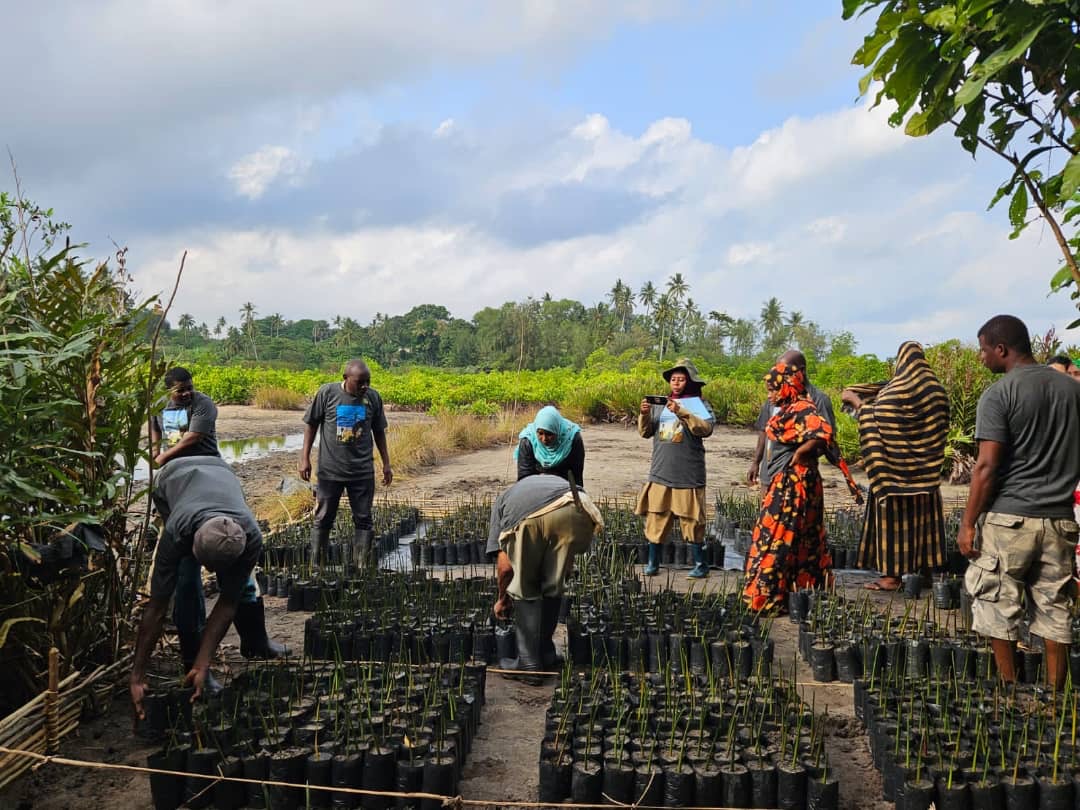
Strengthening the Contribution of Local Actors for a Climate Resilient Society in Zanzibar
Tanzanian coastal areas and Zanzibar islands have complex and dynamic systems in terms of both human activity and biophysical conditions. They carry a substantial proportion of the national population and support several community livelihood options.
Unfortunately, in Zanzibar, the economy, and the livelihood sectors of 87% of the population are climate sensitive with high levels of vulnerability (especially agriculture, freshwater, settlement, fisheries, and tourism) and face environmental degradation. Other linked challenges include droughts, storms, temperature rise, strong wind speed, saltwater intrusion, coastal erosion and displacement, impaired drinking water and soil fertility, and floods.
These climate change and variability challenges are resulting in significant economic costs, loss of life, poverty, and other human capital which compromise food and water security for most local communities.
Therefore, the project
contributes to developing climate resilience in local communities in Zanzibar.
Objectives
The project aims to improve climate change adaptation
practices in Zanzibar by 2025 and support the reviewing of Zanzibar political frameworks (Zanzibar Climate Change Strategy and/or Zanzibar Environment Policy strategies) in a participative manner and are coherent with the NDC.
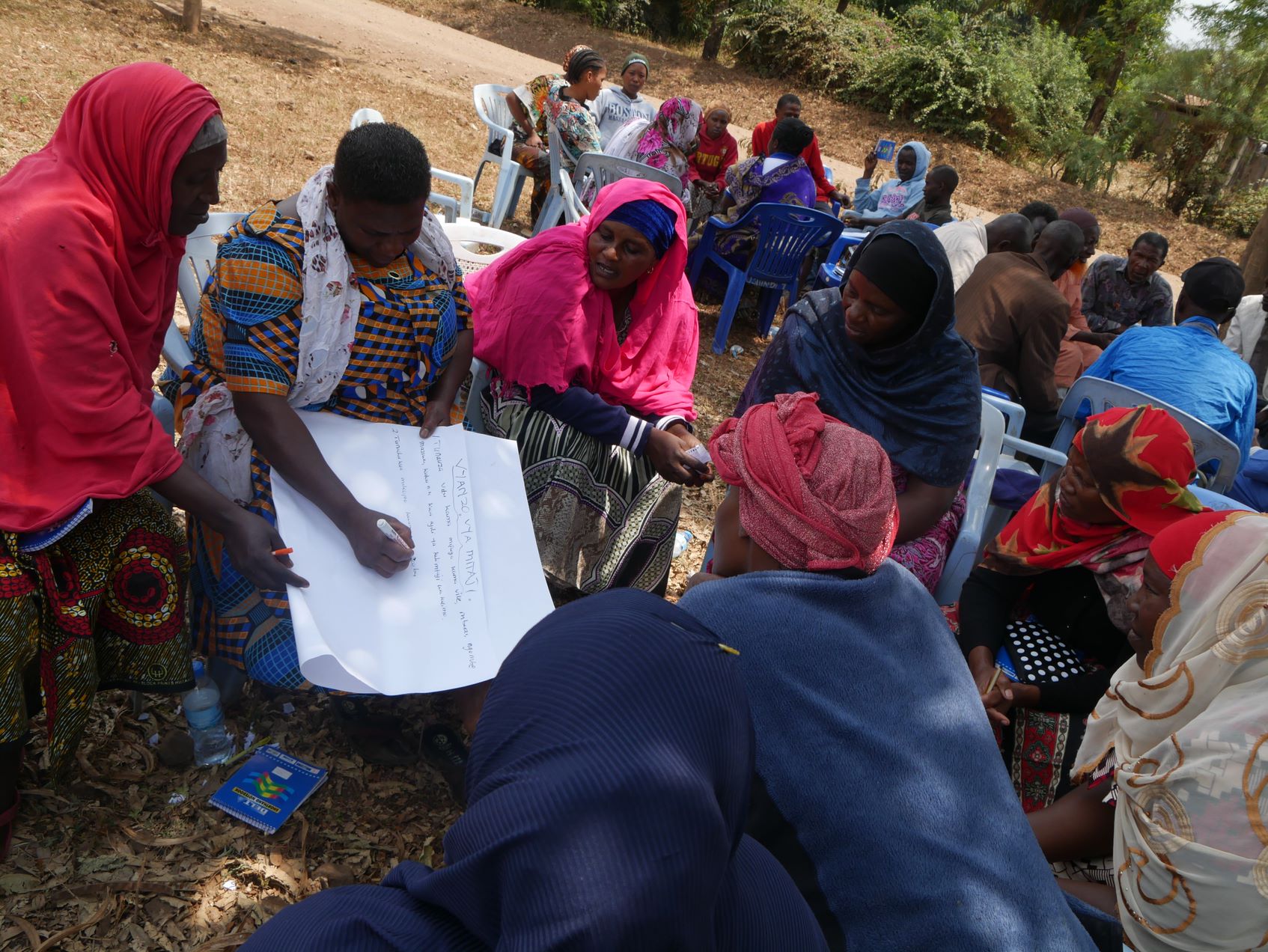
Enhancing the role of Solar Irrigation for Poverty Reduction Near Mt. Kilimanjaro
The project for enhancing the role of solar irrigation for poverty reduction is aiming at enhancing the adoption of solar-powered irrigation technology by the smallholder farmers in the three target project areas, leading to improved and diversified food production, enhanced climate resilience and overall social well-being, enhanced environmental conservation and climate change resilience.
Due to climate change water stresses in most tanzania communities increased. Research show that the effect of severe droughts in Hai District impact agriculture production and food security significantly.Traditionally for irrigation water from river diversions or natural springs were used. This secured the food security and income to the majority of farmers in Hai District. However, the situation has changed in recent year so farmers are no longer able to rely on traditional irrigation techniques. Due to the change of rainfall patterns streams and rivers does not flow anymore predictable continuously throughout the year.This project addresses theirfore the need for a sustainable all-year-round irrigation. The project is implemented in the three villages of Ngosero, Kilima Mbogo and Mkombozi which are located in the dry lowland plains of the southern part of Mt. Kilimanjaro.
Hydrogeological studies, conducted in the initial phase of the project showed that enough groundwater is accessible by drilling boreholes to set-up solar-power irrigation schemes.
To ensure the sustainability of the project farmers are trained in climate smart farming and agribusiness.By this approach farmes build the capacity to utilize the solar irrigation to change their farming from rain-fed to all-year-round and using the surplus of the harvest to finance maintenance cost and reduce poverty. Based on these interventions with an holistic human-centered and participatory approach, it is expected that smallholders in will get resilient and capable of coping with present and projected shocks from climate change.
Funded by the Germany Government through
the Ministry for Economic Cooperation and Development (BMZ), this 2-year
project aims at enabling the poor, marginalized and vulnerable smallholder
farmers in three villages (Ngosero, Kilima Mbogo, and Mkombozi) located in the
dry lowland plains of the southern part of Mt. Kilimanjaro to overcome the
pervasive challenges of poverty, food insecurity. It also seeks to address gender
inequality and water use conflicts caused by lack of access to reliable and
affordable water supply for irrigation purposes as compounded by the growing
impacts of climate change.
In this regard, 2021 was the first year of
implementation for this project. Accordingly, the project team worked diligently
to initiate the various project activities in line with the project design and
respective work plan. Key activities implemented and achievements are presented
below:
i. Project launch: Project was successfully launched in February 2021
marking official commencement of implementation. This intervention involved
mobilization of all key stakeholders to ensure their buy-in and ownership. This
phase also involved confirmation of project management committees namely
Project Steering Committee and Project Implementation Committee as well as
validation of farmers and water user groups.
ii.
Baseline studies: These studies
were conducted between February and May 2021 in order to establish accurate
benchmarks against which to measure progress. The studies also helped to
understand key gaps, needs, and entry points (opportunities) for enhancing the
implementation of the project. Specifically, the studies include socio-economic
survey, Environmental impact Assessment and hydrogeological survey.
iii.
Drilling of boreholes: This
important component of the project commenced in October 2021 after completion
of hydrogeological studies and securing the drilling permits from the
respective Pangani Basin Water Board. By end of December 2021, drilling of two
of the three boreholes was completed in two villages of Mkombozi and
Kilimambogo, pending installation of solar powered water pumps to pump water
for irrigation.
iv.
Training of communities on
agronomy and climate smart agriculture. In preparation for irrigation, the
initial training to orient and sensitize communities
On this basis the
next steps include installation of solar power system to operationalized
boreholes, establishment Farmers Field Schools (FFS) to facilitate
demonstrations on Climate Smart Agriculture using modern irrigation practices
for enhanced productivity and security of livelihood. Other activities will
include advanced training to small-holder farmers on Business Development
Services and entrepreneurship.
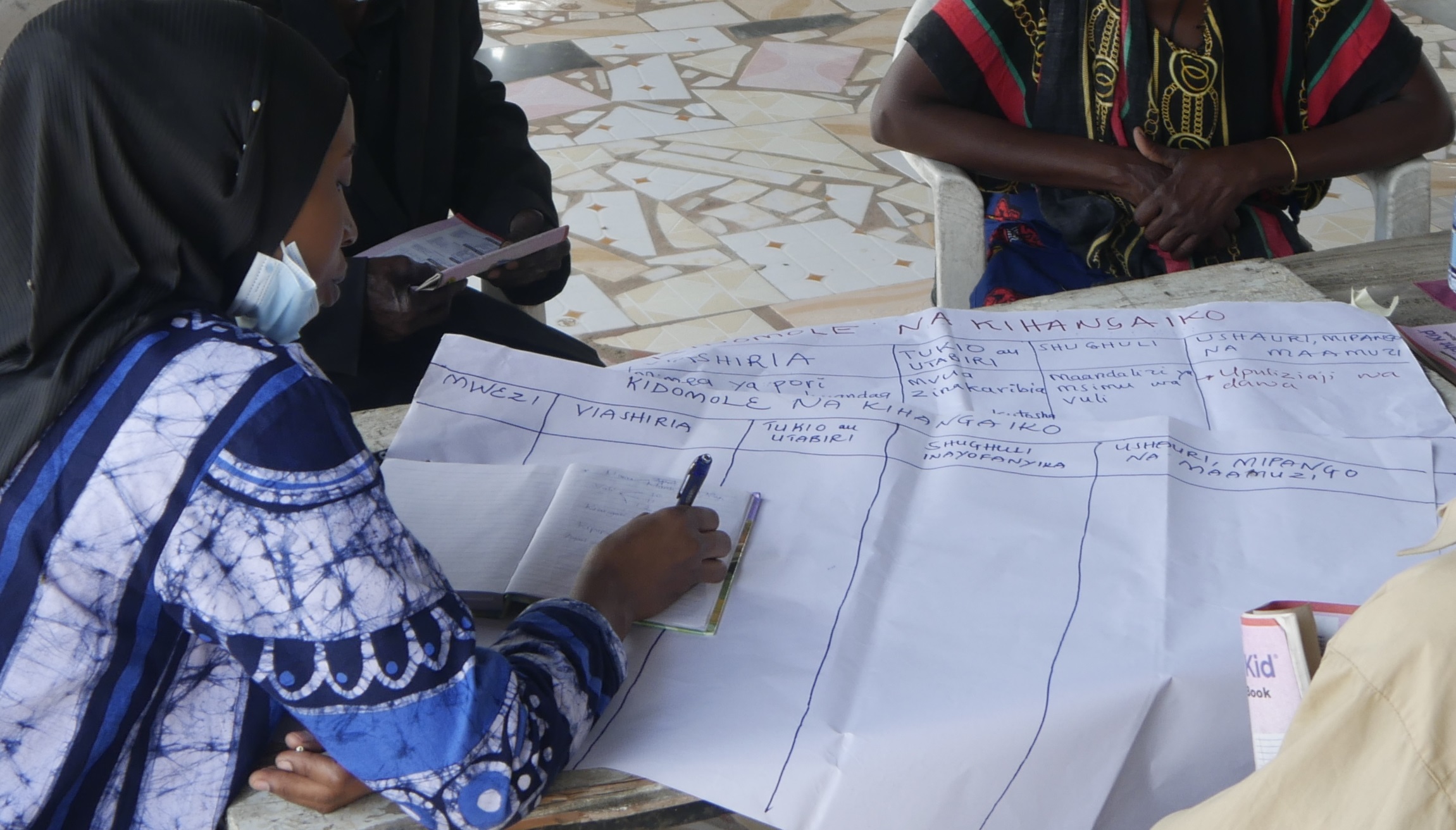
Aligning Climate Resilience, Sustainable Development and Poverty Reduction in Tanzania (Phase II)
Tanzania envisions becoming a middle income country by 2025. In order to realise this ambitious vision it is elementary that Tanzania develops on a sustainable pathway addressing issues such as poverty reduction and building climate resilience. The impact of climate change causing loss and damage in Tanzania is the major threat for a sustainable development of Tanzania. Therefore it is key for Tanzania to mitigate emission and adaptate to climate change in order to reduce the vulnerability of communities and the economy. This project foucs in consquence on strenghening and empowering up-scaling of Renewable Energies (RE) and Climate Services (CS) in Tanzania.
On Renewable Energy:
The role of RE in supporting climate resilient building and realising National Determined Contributions (NDCs), as part of the Paris Agreement, cannot be over emphasized. Despite the fact that, Tanzania has abundant and high-quality RE resources which are well distributed within the country, they are largely unexploited. Still, the energy sector portfolio in Tanzania has remained predominated by traditional biomass and imported expensive fossil fuels. This situation largely leads to deforestation and limits opportunity for socio-economic development and is an additional burden to the country’s economy due to price fluctuations creating an endless vicious cycle of poverty for communities.
Therefore CAN TZ aims to increase advocacy and consultancy on RE in Tanzania, in order to mainstream up-scaling of RE into national energy planning and policies. CAN TZ and civil society organisations will play a critical role in coordinating efforts towards inclusive and participatory development of important national energy strategies. CAN TZ will continue its advocacy on renewable energy to build stakeholders’ capacity while stimulating informed discussion and dialogues at national level through coalitions and technical meetings and dialogues with respective stakeholders.
At the center of the efforts to empower the up-scaling of RE is the formation of a National Coalition (NC) for RE, initiated by CAN TZ. The NC is a coordinated multi-stakeholder forum enabling discussion, engagement that advocates for integration of RE in the national planning and budgeting frameworks.
Learn more on the topic in the CAN TZ Hub on Renewable Energies (RE)
On Climate Services:
In Tanzania, smallholders (farmers, pastoralists, and fishers) employ largest population proportion (about 80%) and contributes about 70% of the total food requirements However, their efforts to achieve better living remain challenged and continue to account for a large proportion of the poor whose livelihoods are vulnerable to impacts of climate change hence reducing their resilience and sustainability. Climate Services (CS) can reduce the vulnerability by providing reliable, timely and useable climate information, that enable smallholder smart decision-making to adapt their livelihood activities (e.g. farming and fishery) to weather and climate phenomena.
In order to increase the dissemination of useable CS in Tanzania CAN TZ is engaged in the implementation of the National Framework for Climate Services. At the center of the efforts to support the implementation of the NFCS is the formation of a National Coalition (NC) for CS, initiated by CAN TZ. Beyond that CAN TZ is establishing the foundation of CS in projects districts Chalinze, Lushoto, Pangani and Bagamoyo. In cooperation with the Tanzanian Meteorology Authority (TMA) CAN TZ conducts Training of Trainers (ToT) , who are training endusers in the use of CS in decision-making for adaptation. The ToTs are trained using the participatory integrated climate services for agriculture and fisheries (PICSAF) approach. Trained end users receive climate information over a SMS system.
A major challenge for usable CS is currently that climate information is not yet available sufficiently downscaled for smallholders. The locally weather and rain patterns, experienced by smallholder, can vary largely from the weather forecast on district level. To downscale climate information the use and integration of indigenous knowledge (IK) into science-based forecasts can be beneficial. Weather forecasting based on local indigenous knowledge orignates from a long tradition of local communities in nature observation and reading indicators such as plant flowering to predict upcoming weather events. In scope of the project CAN TZ work with local indigenous forecasters to gain experience in tailoring and disseminating integrated forecasts. These activities form the advocacy and consulting work on implementation of the NFCS. CAN TZ is working together with the national coalition on CS to mainstream IK-based integrated forecasts into the implementation of the NFCS.
Learn more on the topic in the CAN TZ Hub on Climate Services (CS)
